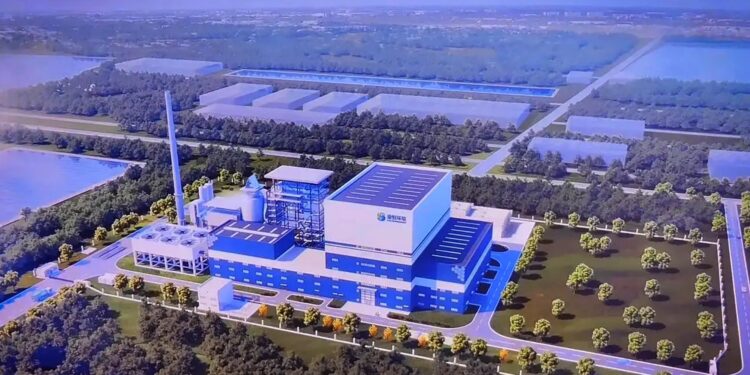Al -Jazeera Net Correspondents
Baghdad – In a country that has been suffering from decades from a chronic energy shortage, and is strongly dependent on importing electricity and gas from Iran, Iraq has taken an unprecedented step in its pursuit of clean energy. Last Thursday, Prime Minister Muhammad Shi’a Al -Sudani launched a pioneering power generation project from waste with a capacity of 100 megawatts in the Nahrawan region, southeast of Baghdad, amid questions about the feasibility of the project economically and environmentally.
The Minister of Electricity Ziad Ali Fadel said that the project’s implementation contract was signed with the Chinese SUS SUS to present the first model in Iraq to treat about 3 thousand tons of waste per day, and to generate electrical energy of up to 100 megawatts in Nahrawan.
This project comes at a time when Iraq is seeking to find local alternatives to obtain gas, after the United States decided to end the exception it was giving it to Baghdad to import gas from Iran.
Environmentally
The Minister of Electricity stated that the cost of the waste conversion project to a capacity of 497 million and 985 thousand dollars, provided that its work is completed within two years, and the Chinese company is granted the right to invest in it for a period of 25 years.
Fadel added, in a statement to Al -Jazeera Net, that the Ministry of Electricity provided great support to the project through its commitment to purchasing the energy produced at supported and stimulated prices, with the aim of reducing the environmental impact resulting from the accumulation of waste.
The Minister called on the governorates of Iraq to allocate appropriate lands to establish projects similar to disposal of waste in safe ways, noting that this project is considered a promising level of reducing pollution resulting from random burning.
He explained that the project is completely investment, as the government provided the land for free, and the Baghdad Municipality takes over daily to hand over about 3 thousand tons of waste to the station.
Fadel stressed that the fourth generation project and a friend of the environment, and that the executing company is among the best 3 international companies specialized in this field. He also revealed that a second project was launched in the Abu Ghraib area after completing the governmental procedures.
Iraq has long relied on importing electricity and gas from Iran, especially during the peak of summer, thanks to the repeated American exemptions. In December 2024, Iraq signed an agreement with Turkmenistan to import 20 million cubic meters per day of gas through the Iranian pipeline network, but the implementation was delayed due to technical problems, according to the Ministry of Electricity.
Recycling waste
Despite the importance of the project, some specialists believe that Iraq may lose a greater opportunity if it does not invest in recycling first.
Mazen Al -Saad, a renewable energy expert, says that burning waste does not represent the perfect choice for Iraq, which can achieve greater economic returns than recycling.
Al -Saad said, in an interview with Al -Jazeera Net, that the establishment of a waste burning station needs a long time, and that burning 3 thousand tons per day to produce 100 megawatts may be economic only if the investor bears full costs, from plural to production.
He pointed out that the recycling of paper, plastic, minerals and wood may generate large fortunes and revive multiple industries, as it contributes to the production of organic fertilizers locally instead of importing them.
Al -Saad warned that the cost of producing 100 megawatts through the burning is very high, especially due to the necessary filters to make the emitted gases friendly. He called for the postponement of the burning option until after achieving the recycling operations, and then the surplus can be used to produce electricity in a practical and sustainable manner.
In light of the increasing challenges in the energy sector, experts believe that Iraq must balance the rapid solutions and long -term economic opportunities. Among those who see the project is an environmental leap, and who considers it a waste of recycling wealth, the answer remains subject to the results of the application on the ground.



